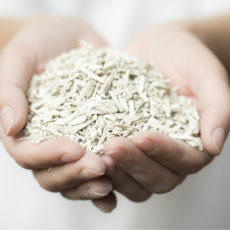Today we’re exploring the most used and most important engineering material in the world: steel.
Read moreconstruction
Hempcrete and Sustainability

Hemp is one of the planet’s most efficient carbon sequesters, able to absorb 1.63 tons of CO2e for every ton grown!
Read moreAre We Running Out of Sand?

Sand is the world’s most mined material with an estimated 50 billion tons extracted from lakes, riverbeds, coastlines, and deltas each year.
Read moreIs Hempcrete Actually a Sustainable Concrete Alternative?

Hemp is arguably a wonder plant! But is it an alternative to concrete? Despite the name, the answer may surprise you!
Read moreThe Carbon Footprint of Concrete

Today, we’re talking about the heavy carbon footprint of concrete.
Read moreHow Can We Run Out of Sand?

Did you know? Sand is the world’s most mined material with an estimated 50 billion tons extracted from lakes, riverbeds, coastlines, and deltas each year.
Read moreWelcome to the Concrete Jungle

Did you know that concrete is the most commonly used building material on the planet?
Read moreBuilding a Better Future – the construction industry’s emissions

The construction industry in the United States has seen a steady increase over the last 10 years. By 2023 it is expected to have a compound annual growth rate of 4.9% and be responsible for $1.8 billion in transactions. As such a major force in the global market the industry is starting to garner more attention for environmental improvements. Right now construction and buildings account for 39% of all CO2 emissions annually. Builders for Climate Action, a respected organization pushing to make sustainable changes in the construction industry, suggests practices which can be built into a building’s design stage to not only reduce, but absorb, carbon emissions.
Read more